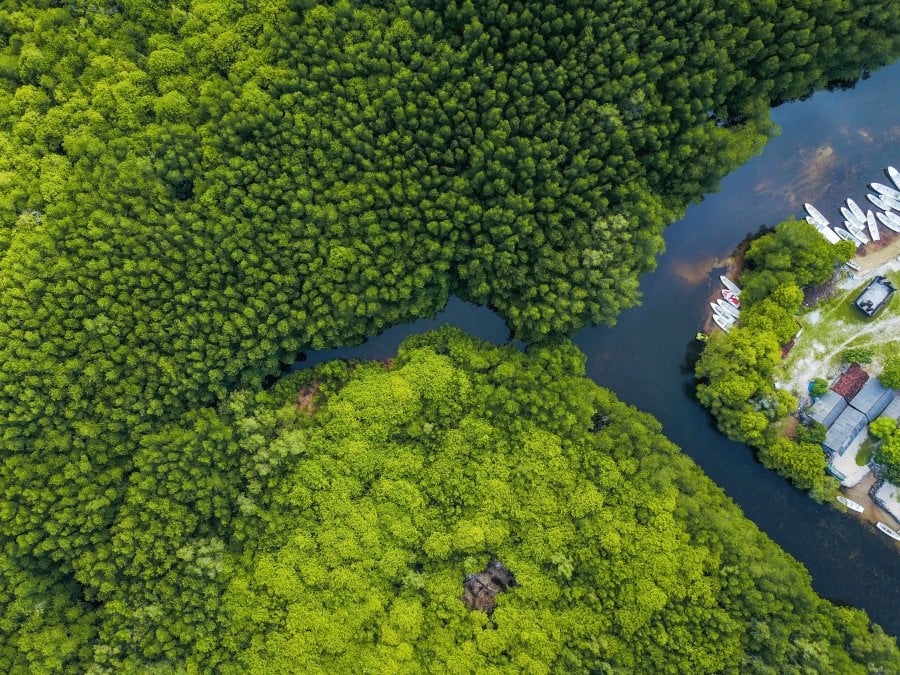
Mangrove forest Indonesia
Although humanity’s recent action on earth has increased life expectancy and led to a global decline in poverty, we are now battling further long-term health consequences from unsustainable use of the planet’s resources and climate change.
The natural world has been disrupted. Large quantities of forests and species have been lost, concentrations of greenhouse gases in the atmosphere have increased and our oceans are polluted. Nature-based solutions are a viable means of restoring natural habitats without compromising human health and prosperity.
Here are four reasons why restoring our natural ecosystems can vastly improve human health:
1) New medicines are discovered in diverse ecosystems
Throughout history, nature has served as a source of bioactive molecules and inspiration for pharmaceuticals. Sourcing natural molecules from plants and microorganisms on land has led to the development of widely used medicines such as penicillin and aspirin, some of which we couldn’t imagine living without today.
Sadly, many species are now endangered such as the Pacific yew tree Taxus brevifolia from which a chemotherapy drug called paclitaxel was extracted.
Oceans are a rich resource for drug discovery, such as antibiotics derived from marine fungus and compounds isolated from marine sponges used in cancer treatment. Not to mention, a neurotoxin isolated from a marine snail with painkiller properties 10 000 times more potent than morphine and without side effects. Climate change results to large quantities of carbon dioxide dissolving into the oceans, threatening marine species risking the loss of many potential therapeutic molecules.
2) Altering natural habitats increases chances of disease spillover from animals to humans
The COVID-19 pandemic is a recent reminder of the human health consequences of loss of natural habitats. The SARS-CoV-2 virus which is responsible for COVID-19 shares genetic similarities with viruses found in horseshoe bats and pangolins. Transforming natural habitats for crops, land for grazing and housing increases the number of domesticated and fast lived species such as domesticated animal, primate, rodents, and bats which are more likely to transmit pathogens to humans. This is dangerously increasing our risks of virus spill over and harmful infectious diseases.
3) Essential foods thrive in sustainable ecosystems
Attempts to maximise food production through pesticides and fertilisers disrupt the natural regulation of our ecosystems. One of the consequences of this is a decline in insect populations, many of which are crucial for pollination in other crops.
The full loss of natural pollinators like bees and butterflies will cause worrying declines in global supply fruit, nuts, seeds and vegetable supplies causing a predicted 1.42 million people to die each year from non-communicable disease and malnutrition. Sustainable agricultural solutions such as integrating trees into agricultural lands can help maximise productivity whilst safeguarding ecosystems can help reduce this risk. Also, mangrove restoration efforts improve the productivity of fisheries help important sources of proteins for many coastal communities, mangroves also enhance coastal safety by offering protection from flooding and tsunamis and sequestering carbon from the atmosphere.
4) Access to nature benefits mental health and wellbeing
NHS England recognises the mental and physical health benefits of increasing green space and access to nature in communities. The health benefits are related to reducing anxiety and improving mood as well as encouraging walking and physical activity. The natural environment also encourages community cohesion which has been associated with lower crime rates in urban areas. Greenspaces in urban settings can also reduce risks from air quality, flooding, and exposure to heatwaves which are significant health risks from climate change.
If you enjoyed this article and would like to build a career in global health, we offer a range of MSc programmes covering health and data, infectious and tropical diseases, population health, and public health and policy.
Available on campus or online, including flexible study that works around your work and home life, be part of a global community at the UK's no.1 public health university.
